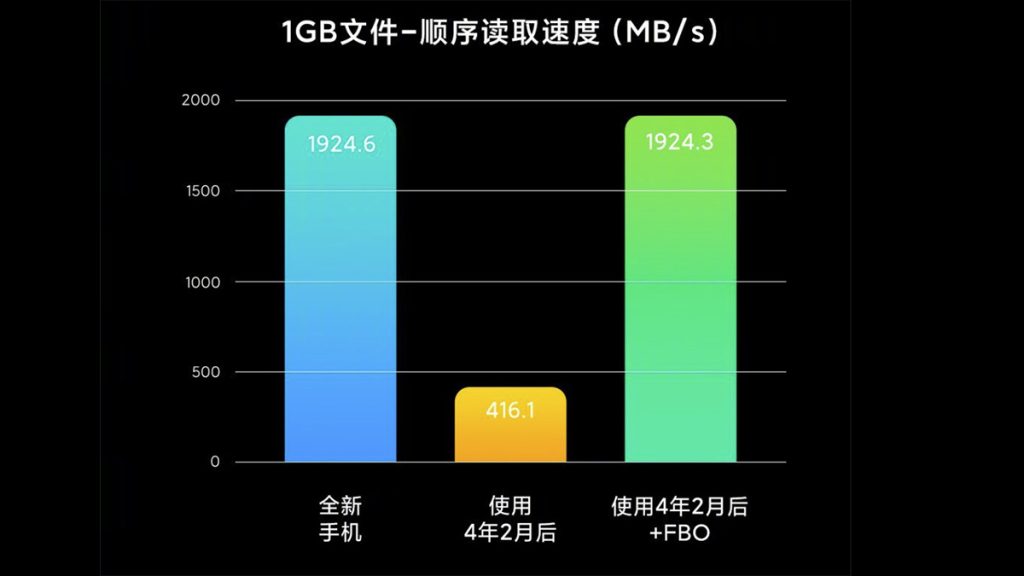Have you ever changed your smartphone not because you wanted an upgrade, but because it was just getting too damn slow for your needs? Obviously, the new phones are just downright faster with newer processors as well as the latest RAM and storage standards, but did you know that part of the reason is also your storage slowing down over time? That’s what Xiaomi’s File-Based Optimization (FBO) aims to solve.
File-Based Optimization eliminates slowdowns over time

Xiaomi applied this new File-Based Optimization (FBO) technology in the recent Xiaomi 12S Ultra. According to their internal simulated testing, you will be looking at close to 5X better long-term performance after 50 months with the Xiaomi 12S Ultra with FBO, versus one without. Essentially, Xiaomi claims that storage read speeds after 50 months of use will be the same as the day you got it.
How FBO delivers this excellent long-term performance is by reducing fragmentation, which cuts down the time needed for data to read from the storage. When a device is new, there are plenty of empty blocks which allow the data to be written sequentially for best performance. However, as it ages, you will end up with a somewhat random array of filled and empty blocks, which result in the fragmented data, and hence performance degradation.
According to this article, it is mentioned that FBO, by contrast, always finds a new location where all the data can be written in a row (sequentially) to an available set of blocks to reduce fragmentation. And this technology will not only enhance the user experience on Xiaomi phones, but instead will be a part of JEDEC UFS 3.1 and UFS 4.0 standards, making them available to any device manufacturer interested to extend the lifespan of their devices.
The Xiaomi 12S Ultra is the first device to feature FBO, although other companies like Micron, Samsung, SK Hynix, Kioxia, and Yangtze Memory Technologies are also adopting it, so we can probably see it across more devices in the near future.